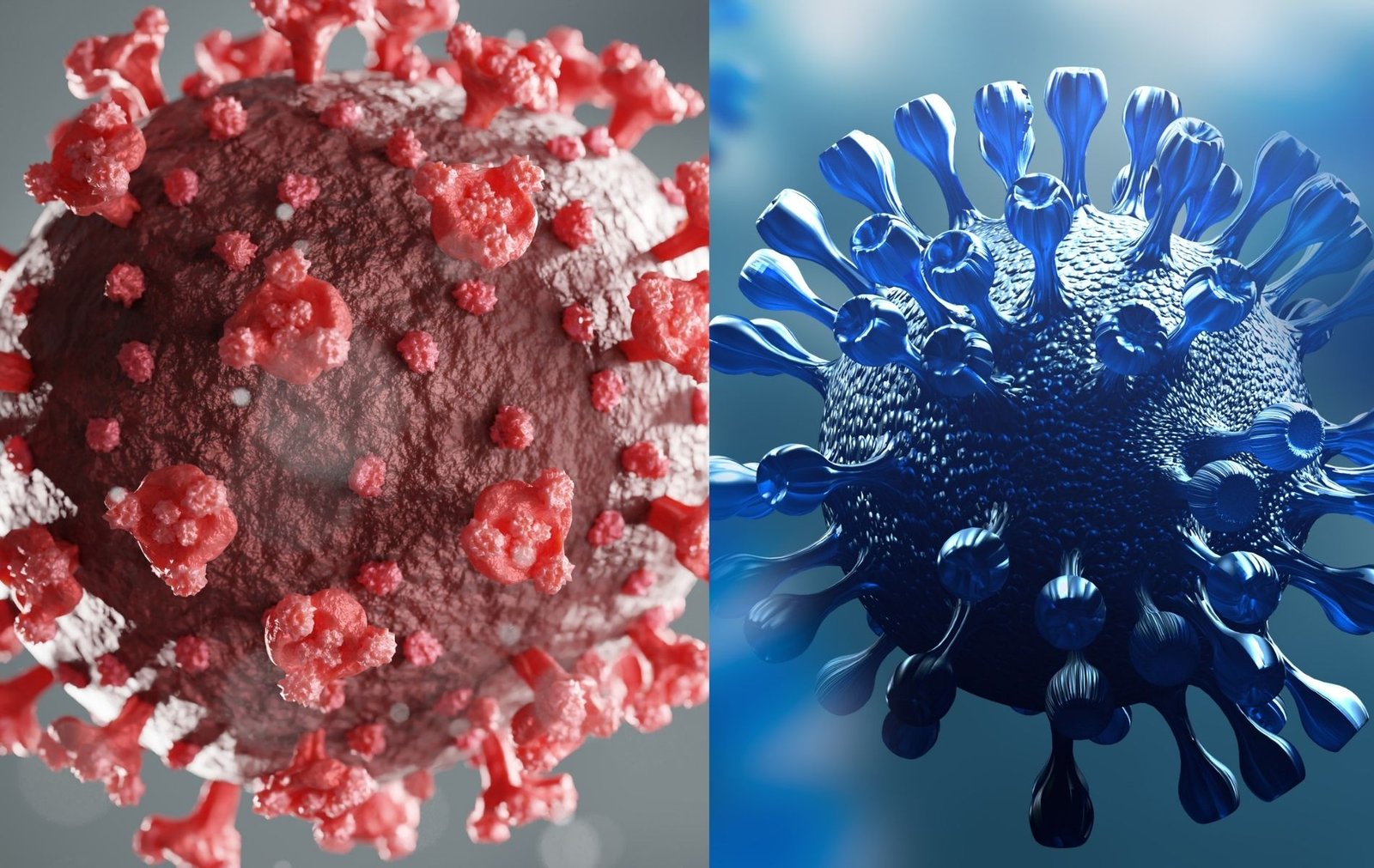BCG-vaccination
Why do you think BCG-vaccination would protect against COVID-19? Is it real?
COVID-19 is not only successful in infecting people around the world (1) but also obsessed people at the same time with lots of irrelevant things.
Who thought this strain of COVID would be stronger than any of its parallel COVID-lines?
Who thought this will be highly contagious, spreading with a record speed? Who thought it could be as potent as it stays outside host for hours to days?
Who thought it could infect not only immune-compromised people or older people but also people at any age? Who thought this virus could be using healthy human as the best carrier when traveling from country to country?
Who thought this not only attacks the respiratory system but also travels through the gastrointestinal tract? Who thought about insisting people “not using face mask” could be dangerous?
No one knew any of these questions or if knew, gave wrong solutions! The list is getting longer and longer. As a matter of fact, now BCG-vaccination is becoming a topic around the world in the context of COVID-19 infection whether the western world made a great mistake not practicing BCG-vaccination as part of routine vaccination strategy, with speculation that BCG-vaccination reduces the number of cases of COVID-19 (2).
Surprisingly, whether it is true or false, some parts of the world (Asia) are not seeing the aggressive nature of COVID-19 cases (3). Interestingly, most countries in Asia still believe the BCG-vaccination program as one of the important ones protecting against tuberculosis (4). In the Western World, BCG vaccination is no longer recommended due to a lack of protection by BCG-vaccination against pulmonary TB.
There are also some side effects of early life BCG vaccination when it comes in the context of HIV infection. The western world stopped using BCG because BCG-vaccination induced immunity is not long-lasting (5), it decays overages. Therefore, revaccination with BCG suggested but was not successful.
What is BCG?
BCG-vaccine contains live attenuated bacteria. It is given subcutaneously, but it could reach to any place in the body within a short time. Because of this unique ability, BCG-vaccination provides strong immune responses in the lungs even it is administered in a remote place. As I mentioned this vaccine was thought effective against tuberculosis. However, tuberculosis is caused by Mycobacterium tuberculosis which is a virulent pathogen, different from BCG to some extent, especially some of the antigens are missing in BCG that is present in virulent mycobacteria.
BCG-specific immunity:
When it comes to the vaccination against any pathogen, generally, scientists look for specific immunity to raise by the vaccination. Since tuberculosis causing pathogen is intracellular, meaning immune cells capture mycobacteria and try to kill it while inside by using their machinery.
It is believed that T cell-based immunity (type-1) is very effective in killing tuberculosis pathogens. Since this infection is respiratory, people thought of inducing specific immunity by giving BCG-vaccination through the intranasal route. Unfortunately, the intranasal route of administration of BCG is not safe, especially for children.
One, remarkable observation is that even BCG- vaccination is not very effective against pulmonary (lung) TB, this still very effective against other forms of tuberculosis, not formed in the lungs. This is why third world countries still keep BCG as their routine vaccination strategy.
Why BCG-induced immunity would be effective against COVID-19?
COVID-19 is a completely different pathogen and does not show any similarities with tuberculosis or BCG. There is no scientific evidence yet showing BCG-induced immunity could prevent COVID-19 infection further to spread. Like many other COVIDs, COVID-19 is using a similar route to attack humans, displaying symptoms like the common cold.
The only difference with COVID-19 is that it could lead to aggressive lung infection and results in pneumonia-like symptoms. To prevent viral infection, scientists would allow natural immunity to develop because there is no effective medication or successful vaccines available against such flu-like virus. Every year we received vaccines against flu (influenza) which are either not effective or sometimes only effective partially.
Interestingly, this virus acquires genetic modification so rapidly and because of this fact ultimately one particular vaccine against the same virus may not work for the next year. This is a common problem and perhaps one biggest challenge in the development of a vaccine against COVID-19 (6).
Now, when a specific vaccine is not working against COVIDs, how one could think BCG-vaccination will provide protection against another pathogen like COVID-19?
Immune response either naturally induced or vaccination-induced is very complex in nature. Generally, two types of immunity can be seen: innate (rapid and non-specific) and adaptive (specific-long-lived). The only advantage of BCG-vaccination is that due to the nature of this vaccine, it induces very strong innate immunity and it is stronger than any other form of vaccines in history. At the same time, BCG could also act as an adjuvant, meaning could help other vaccines when giving at the same time or in a strategy called prime-boost vaccination.
BCG can work as a very good candidate to prime the immune system. When the term ‘priming’ comes, it induces strong innate immune responses, which is generally important to let adaptive immune cells to know. This collaborative effort is very necessary to use all of the tools of the immune system in order to generate an effective immune response.
Virus-induced natural immunity:
Most of these seasonal flu-virus induced immunity is developed with a week or two. The scientist also aims for inducing humoral (a specific antibody) immune response when targeting a vaccine against any of this virus. Since a majority of the population are naturally protective against common flu, it is thought that antibody-mediated protection is the key, because specific antibody can neutralize the virus.
Thus, in the context of BCG-vaccination, one key question is does BCG-vaccination induce specific antibody responses against COVID-19? The answer is likely ‘NO’.
But one possibility is that BCG-vaccination is very unique in the sense that this could induce lots of cross-reactive antibodies in the body. These cross-reactive responses sometimes could be effective against many different pathogens. But this needs to be tested in the laboratory whether it is true or not. As science progresses, people also learned recently that ‘innate immunity’ which I mentioned earlier that not specific and short-lived, could be trained and have memory. This version of innate immunity is called trained-innate-immunity which shows enhanced responsiveness when reencounter same pathogen.
Overall, it is very premature whether BCG-induced immunity will be protective against COVID-19 unless it is tested in the laboratory by asking questions properly.
Conflict of interest: The author declares no conflict of interest.
References:
- Clinical features of patients infected with 2019 novel coronavirus in Wuhan, China. Lancet. 2020 Feb 15;395(10223):497-506.
- Can an Old Vaccine Stop the New Coronavirus? By Roni Caryn Rabin, New York Times, April 3, 2020
- The map suggests TB vaccine may help prevent COVID-19, by Bradley K. Martin, Asia Times, April 1, 2020.
- Need for BCG Vaccination to Prevent TB in High-Incidence Countries and Populations. Emerg Infect Dis. 2020;26(3):624-625.
- The age-related waning of immune responses to BCG in healthy children supports the need for a booster dose of BCG in TB endemic countries. Sci Rep. 2018 Oct 17;8(1):15309.
- Influenza vaccines: challenges and solutions. Cell Host Microbe. 2015 Mar 11;17(3):295-300.
Reported by Dr. Jubayer Rahman (PhD in Infectious Immunology), Maryland, USA









Thanks for this additional information about covid 19
I think we should wait and not speculate. Hopefully soon there will be a vaccine that will protect against this virus, there are quite a few in the testing phase at the moment.
very interesting information. Right now I try to think of the pandemic and focus on day to day life
I sure hope they find a good vacine for this pretty soon so we can go outside again 🙂
I dont know about vaccination right now. It gives me two sides of going with this or not because of the flue vaccine a year ago that fails here in my country who killed a lot of kids. So this is still vague for me.
This is interesting information. I wonder how things will go in the next couple months and even years. Hard to tell how it will all play out.
Sounds interesting and we are hoping for the best vaccine to cure the Covid-19 nice post!
Very interesting and educative article, we know the healthcare sector are also trying their best as well.
I follow the official medical news. As of today, they say there’s nothing that has been worked out to use as a vaccine.
i think it’s hard to know anything at this point. There’s so much misinformation going back and forth. We are anxious and do not know what’s going on so we try to fill in the gaps with a lot of bogus information. Unfortunately, we probably won’t have a vaccine for another year to year and a half at the earliest.
I have heard a lot about BCG,I’m just not sure if it’s true or not.
I’ve never heard about BCG to be honest but I really hope they invent a vaccine soon. The BCG might be one option…
Very unfortunate for this biological warfare
We do not know when it will end and how much
We ask God to remove this scourge from us
This is a very interesting with convo. I just want as’ich research as possible.
This is certainly a hot topic right now and so much conflicting information is floating around the media. Thank you for put this conversation out there for others to process.